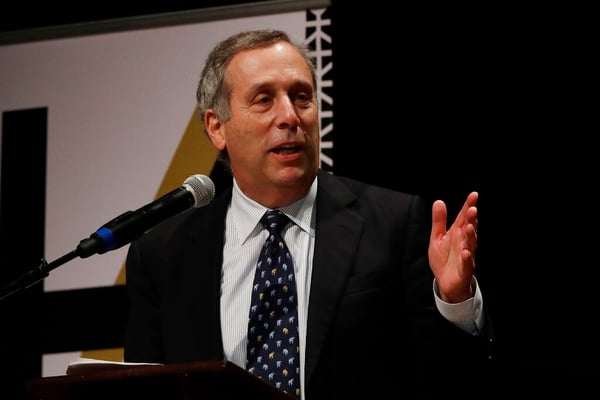Harvard cannot have a double standard regarding matters of Jewish or the nation-state of the Jewish people, even if some radical students demand it.
By Alan M. Dershowitz, Gatestone Institute
The President of Harvard — a proud Jewish supporter of Israel and a good person— has thus far refused explicitly to condemn The Harvard Crimson’s blatantly antisemitic editorial singling out Israel for a political boycott.
The Crimson editors justify their bigotry by subtly invoking the classic antisemitic trope of Jewish “power,” and by presenting a one-sided history that places no fault on the Palestinian leadership, ignores the threats faced by Israel from Palestinian terrorist and Iranian nuclear threats, and mendaciously omits the numerous Palestinian rejections of Israel’s offers to accept a two-state solution.
The former president of Harvard, Lawrence Summers condemned the editorial as antisemitic in both “intent and effect.” But Harvard President Lawrence Bacow refused to condemn the editorial, limiting himself to the following:
“First let me say that I will not comment on the Crimson editorial. The Crimson is a student newspaper. It is independent of the university, and, I think it is fair to say, the Crimson does not represent, or certainly, the editorial board does not represent, the views of the university. The Crimson editorial board represents the views of the Crimson editorial board. We believe in a free press. They are entitled to publish what they wish and to share their views as they may.”
Standing alone, that statement can be justified. But the more difficult question is whether it passes the “shoe on the other foot test” of neutrality? Would a similar refusal to condemn explicitly other bigoted editorials that singled out other groups or nations be deemed acceptable by the Harvard community? I doubt it.
Harvard in the 1930s
Consider the following hypotheticals — hypotheticals only because the current reality would never permit them to be published:
* An editorial supporting the overruling of Roe v. Wade and calling for the banning of all “baby-killing” abortions;
* An editorial blaming race-based affirmative action for lowering standards throughout the country;
* An editorial calling gay and transgender people abnormal and immoral.
* An editorial calling climate concerns “fake news;”
* An editorial singling out Black African nations for human rights violations that are worse in other parts of the world;
* An editorial declaring Donald Trump the legitimate winner of the 2020 election.
These outrageous statements may seem farfetched to the contemporary eye. But it was less than 90 years ago that The Harvard Crimson supported giving an honorary doctorate to the official spokesperson for Hitler’s Nazi Germany.
Harvard’s then-president, James B. Conant, did not condemn the editorial. Indeed, he himself supported Nazi Germany in many ways.
I do not mean to compare the current editorial to the one in the 1930s or to compare the reactions of Harvard’s presidents. There is no comparison. I cite the pro-Nazi editorial to make the point that what is politically acceptable today — singling out the nation-state of the Jewish people for bigoted and mendacious condemnation— may be as different in the future as it was in the past.
No Double Standards Allowed
The question Bacow should ask himself is whether he would refuse to comment on any of the hypothetical editorials, were The Crimson to publish them. And if his answer is that they are different, he should ask why.
The one about affirmative action would involve Harvard directly, and so there would be a justification for “no comment,” but at least some of the others would be quite analogous to the anti-Israel editorial: they would cause pain to many Harvard students but would not directly affect the university itself.
Harvard cannot have a double standard regarding matters of Jewish or the nation-state of the Jewish people, even if some radical students demand it.
Bacow should reconsider his no-comment stance and use his bully pulpit to say what I’m sure he believes in his heart: that The Crimson’s editorial was a bigoted, mendacious and irresponsible attack on the nation-state of the Jewish people and its supporters.
If he persists on not commenting on this editorial, he must apply that same standard to other statements that are associated with the Harvard name, even when they do not represent “the views of the university.”
The left shoe must fit comfortably on the right foot — and vice versa.
